Reconstruction of HDR Videos using Multiple Camera Setups
High Dynamic Range (HDR) Stereo Datasets
Overview
Stereo high dynamic range (HDR) imaging offers a promising solution to overcome the dynamic range limitations often encountered in conventional cameras, particularly when capturing scenes with high contrast or varying lighting conditions. In contrast to traditional methods relying on temporal exposure bracketing, which can be unsuitable for dynamic scenes or HDR video, stereo HDR imaging introduces a novel framework leveraging a spatial exposure bracketing approach facilitated by a stereo camera setup. The dataset comprises HDR image data captured using a stereo camera configuration, enabling spatially distributed exposure bracketing across the two cameras. This setup allows for the capture of HDR images of dynamic scenes and facilitates HDR video production through a frame-by-frame operating principle. The dataset not only serves as a valuable resource for researchers and practitioners in the field of HDR imaging but also offers opportunities for exploring novel applications and methodologies, such as HDR video processing, scene reconstruction, and quality assessment techniques.
Datasets
Dataset LMS Pillars:
Artificially created and rendered video sequence using Blender. It consists of 2 camera views with 54 frames each. Furthermore, every frame is available in 7 different exposures. The spatial resolution of each frame is 960×540 pixel.
- First frame of the LDR video for the left camera view:
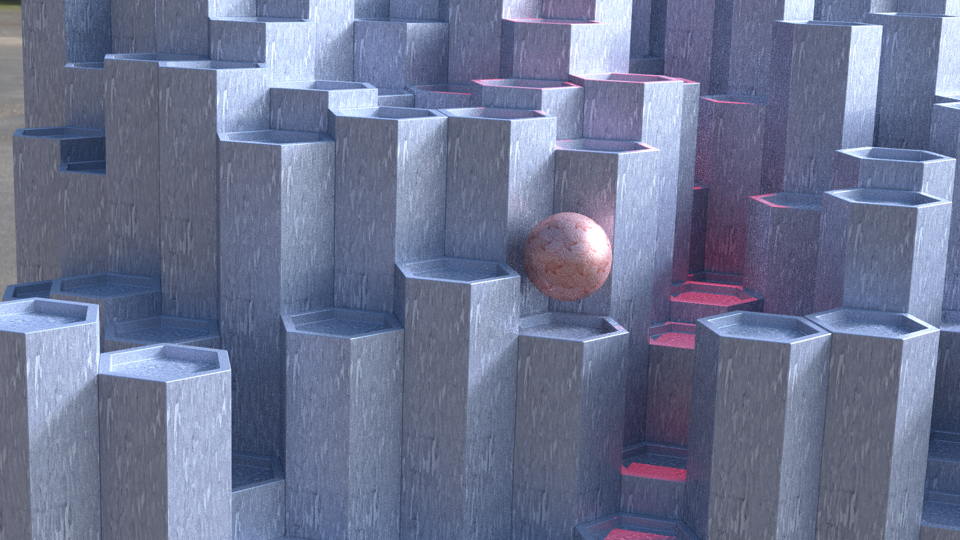
- First frame of the LDR video for the right camera view:
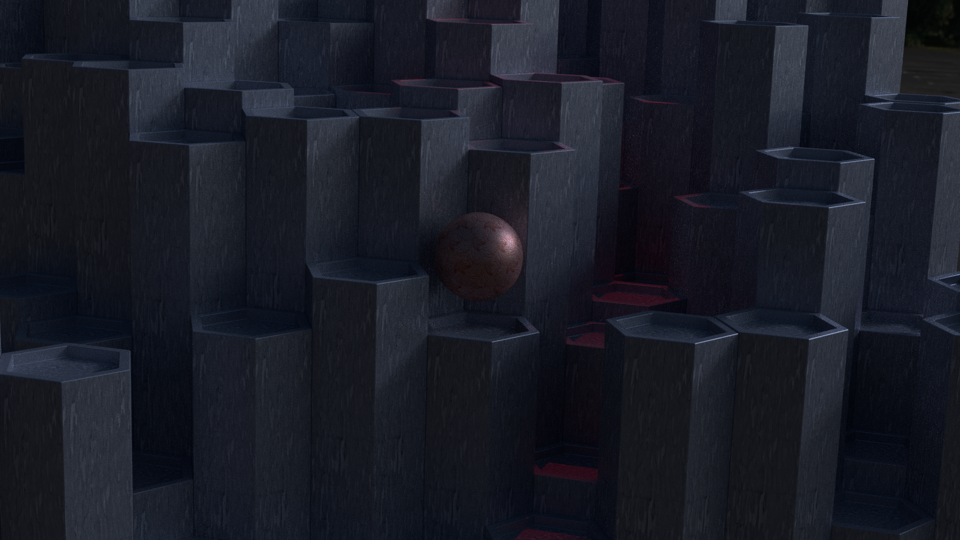
- First frame of the tone-mapped HDR video obtained from combining the left and right camera view:
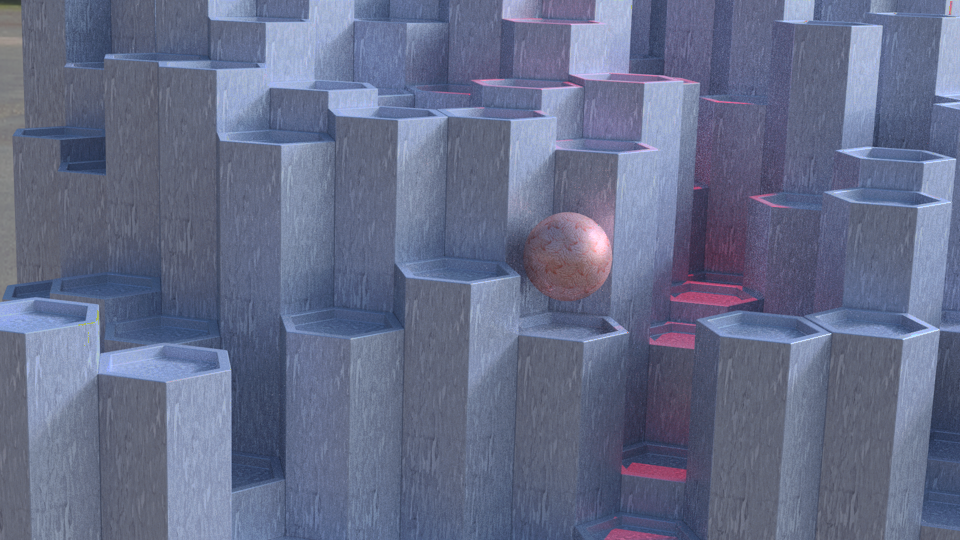
- Link to the combined left and right LDR video (compressed):
LMSPillars_LeftRightVideo (5,8MB) - Link to the tone-mapped HDR video (compressed):
LMSPillars_HDRVideo (3,5MB) - Link to the uncompressed YUV444 sequences:
UncompressedSequences (196MB) - Link to the complete dataset ‘LMS Pillars’ (contains both the above-mentioned compressed AVI files and the uncompressed YUV444 files as well as all created frames as PNG files):
LMSPillars-Datensatz (672MB)
Dataset IIS Jumble:
This dataset of a static scene has been acquired using a motorized XY translation stage and comprises 15 camera views (5×3). For each view, 5 different exposures as well as a calibration image are available. The spatial resolution of each image is 2560×1920 pixel.
- Example for the left camera view. View 12 with normal exposure after rectification:
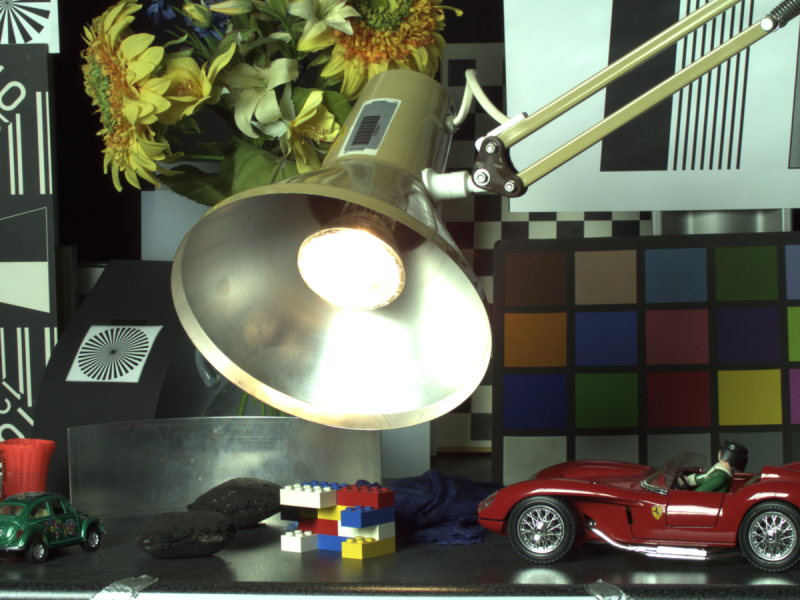
- Example for the right camera view. View 13 with lower exposure after rectification:
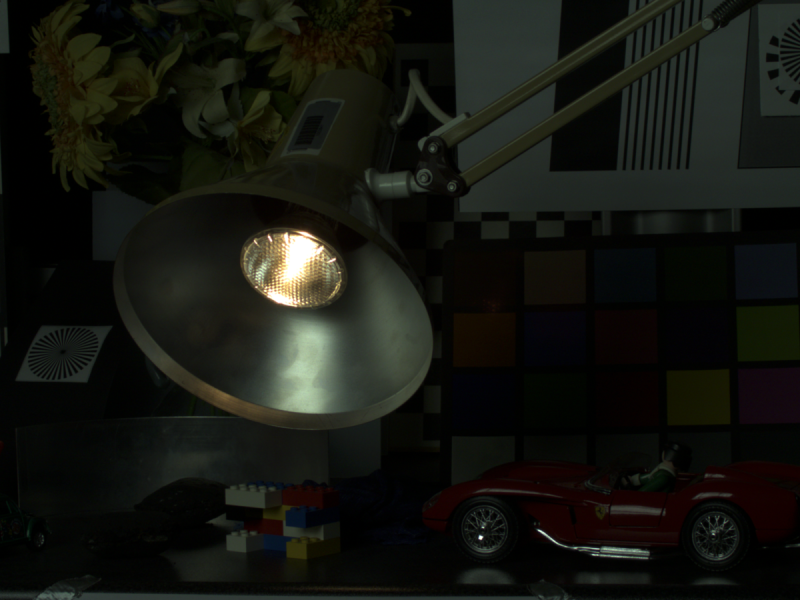
- Tonemapped HDR image which has been computed using the left and right camera view:
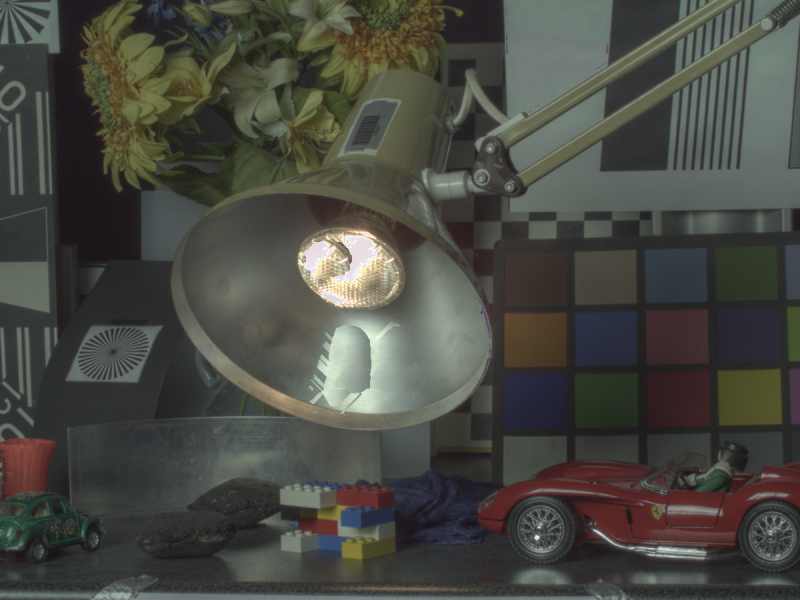
- Link to the complete dataset ‘IIS Jumble’ (contains all acquired images as PNG files):
IISJumble-Datensatz (EULA, 564MB)
Publication
If you use the dataset for your research, you should cite the follwing paper:
Michel Bätz, Thomas Richter, Jens-Uwe Garbas, Anton Papst, Jürgen Seiler, André Kaup
High dynamic range video reconstruction from a stereo camera setup
Signal Processing: Image Communication, vol. 29, num. 2, Feb., 2014, pp. 191-202
DOI: 10.1016/j.image.2013.08.016
License
Please read the following terms carefully, because with the download you confirm that you agree with the terms.
End User License Agreement about HDR Test Video Sequence "IIS Jumble" by Fraunhofer Institute for Integrated Circuits IIS in cooperation with Chair of Multimedia Communications and Signal Processing By acknowledging this agreement, the User agrees to the following terms. 1. Commercial use Unless otherwise agreed in writing, the user may use the Test Video Sequence for academic research purposes only. Non-academic purposes include, but are not limited to, proving the efficiency of commercial systems or optimization of commercial systems. 2. Distribution The User may not distribute the Test Video Sequence or portions thereof in any way with the exception of using small portions of data for the purpose of clarifying academic publications or presentations. 3. Publications Publications include not only papers or articles, but also presentations for conferences or educational purposes. All publications that make direct or indirect use of the Test Video Sequence will acknowledge this by citing the following journal article: Michel Bätz, Thomas Richter, Jens-Uwe Garbas, Anton Papst, Jürgen Seiler, André Kaup, "High dynamic range video reconstruction from a stereo camera setup," Signal Processing: Image Communication, Volume 29, Issue 2, February 2014, pp. 191-202, ISSN 0923-5965 4. Changes Fraunhofer Institute for Integrated Circuits IIS is allowed to change this EULA at any time; users will be informed about changes beforehand and have the choice to decline in which case they will loose their right to use the Test Video Sequence. 5. Warranty The Test Video Sequence is provided "as is". Fraunhofer Institute for Integrated Circuits IIS disclaims all warranties and shall not be liable for any damage in connection with the use of this Test Video Sequence.
